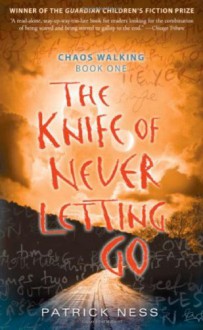
Ship Breaker, by Paolo Bacigalupi
Bacigalupi has written a complex, violent novel in a grimly plausible near-future, where our rape of the planet has altered not just the physical plane, but also the way we live. The coastlines are altered beyond recognition as the seas rise, and resources worldwide have failed. Massive destructive storms ("city killers") are now normal events. The gap between rich and poor is so enormous now that they hardly know about one another anymore. Our hero, Nailer, is a wiry youth living on the beaches of the southern coastline, on the fringes of becoming a member of a ruthless recycling gang. Day to day survival is iffy, and the chances of a better life to come are nearly zero. They live (barely) by stripping useable bits from wrecked oil tankers, sleeping at night in shanty huts on the sand, and noshing on roasted rats and bits of fruit.
I liked the first half of the novel better than the second. In the first half, we meet Nailer's "tribe": his fellow crew mates (who would all gladly kill him if it meant another meal for themselves), and his one friend Pima and her mother Sadna (my favorite person in the book), as well as his tormented and abusive father. I was intrigued with how well the author wrote about Nailer's attempts to sidetrack his vicious father (repeatedly described as feral: we need a synonym for that word) as he begins to get worked up into a kid-beating frenzy. It gave me some insight into abused children.
I was intrigued by the half-human "dog man" character Tool, a genetically engineered bodyguard, and would gladly read a whole book explaining where he came from and how he became what he is, which defies logic. And I want to know how Sadna managed to retain such humanity in the inhumane world in which she must live.
Bacigalupi is a talented writer, in places completely suspending my reality. When Nailer nearly dies by drowning alone in the dark in an oil tank, for instance, I was engulfed in fear. I also loved the scene in the city, when Nailer, seeing his father with some henchmen, hides under the floating sidewalk and follows them, trying to listen from beneath without being seen. I have actually experienced being hidden in the water, underneath people on a dock like that, low to the water, and I felt he really captured the experience.
I was frustrated by the "pretty" girl Nailer rescues, both because she is not well-fleshed out, even by the end of the novel, and because he had to make her pretty. Why pretty? Why not smart, or interesting, or even just exotic looking to Nailer? I was glad the romance between the two is kept to a minimum. I wish more details had emerged about (a) why so many people with means and money are so loyal to her, and (b) what her motivations are. Maybe in the sequel? I also wished there had been a bit less philosophizing by the young people. For example, just SHOW me that Nailer is beginning to develop compassion: don't tell me what he is thinking about whether or not he should show compassion.
On the whole I really liked the novel. His world building is detailed and wonderful. The fusion of religions, the harvesting of organs for profit, the lack of choices and mobility, the failure of resources, the bits of the old reality that survive (the name Lucky Strike, for instance, or the idea of calendar pictures hung on the wall, inspiring dreams) all rang true to me.
It's quite brutal to read: Nailer must kill several people, in one case by slashing a woman's throat as she lies sleeping, and (spoiler alert) he eventually must kill his own father. Several people die throughout the novel, others get maimed and cast away to be exiled and likely die, and suffer other horrors. Early on, for instance, we are told the tragic tale of a younger, smaller child who got lost in the bowels of the oil tankers while seeking cooper wire to scavenge, and he dies there, alone, his body eaten by rats. Such imagery makes this book for more suitable for older young adults, over 12 at least.

 Log in with Facebook
Log in with Facebook 











